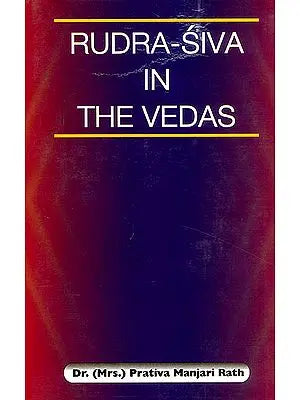Rudra-Siva in The Vedas
Rudra-Siva in The Vedas
HARDCOVER
Couldn't load pickup availability
| PUBLISHER: | BHARATIYA VIDYA PRAKASHAN |
| AUTHOR: | DR. (MRS.) PRATIVA MANJARI RATH |
| LANGUAGE: | ENGLISH |
| EDITION: | 2011 |
| ISBN: | 9788121702263 |
| PAGES: | 364 |
| COVER: | HARDCOVER |
| OTHER DETAILS | 9.0 INCH X 6.0 INCH |
| WEIGHT | 600 GM |
The work “Rudra-Siva in the Vedas”, comprising of five chapters, aims at unraveling the mystery surrounding the Vedic deity, Rudra and his worship right from the Samita period down to that of Sutra literature. The concept of Siva, the famous deity of Hindu Trinity, finds it‘s origin in the Vedic Rudra and no other deity of the Vedic pantheon has undergone so much transformation as noticed in case of Rudra. Ideas associated with this deity sometimes characterize him as falling under outside the Aryan culture. Scholars have viewed him as having a non Aryan origin ascribing aboriginal character to him. But this work attempts to prove the Vedic character of the evolution of Rudra-Siva.
The Introduction consist of two main sections, namely, an estimate of the previous works done on the subject and secondly the discussions on the necessity of the present study. The first chapter is an exposition of the concept of Rudra’s various Vedic texts starting from the Samhita period to Sutra literature. Rudra’s association with allied cults as revealed from Atharvavedic mantras from an interesting phase of the evolution of Rudra’s personality. The second and third chapters are specially interesting in as far as they recount the names and epithets of Rudra as found in Vedic literature along with Rudra’s association in Vedic sacrifices respectively. An analysis of the relation of Rudra with a number of Vedic deities like Agni, Soma, Indra, Maruts, Asvins etc., brings out the interesting features of Rudra’s worship. This forms the main content of the fourth chapter. The fifth chapter is an epilogue on the whole work.
The Vedic evidences furnish sufficient data about Rudra’s traverse from Rudra to Rudra-Siva. The originality of the Work lies in it’s attempt to establish Rudra as a Vedic and Aryan divinity. The approach is sound, the analysis exhaustive, comprehensive and convincing being based upon well-chosen literary evidences.
The field of studies on Rudra-Siva appears to be apparently saturated. But rare attempts have been made by the scholars on the position of Rudra in Vedic sacrifices and rituals. Rudra’s representation in Siva Upanisads, the details of Satarudriya litany with elongated list of epithets and Rudra’s place in the Vedic.
Share


